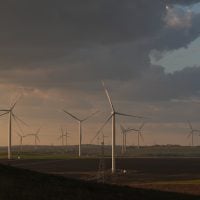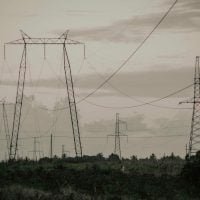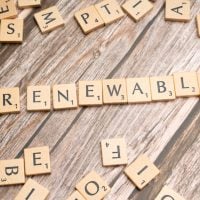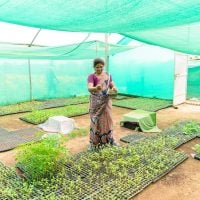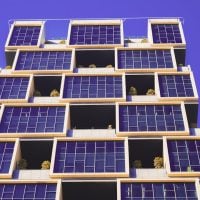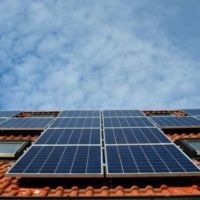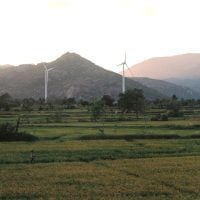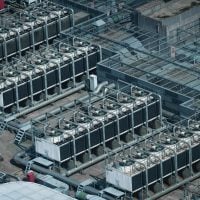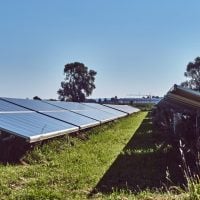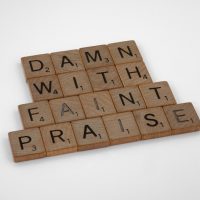Deadline: 14-Apr-23
Norad – the Norwegian Agency for Development Cooperation has launched a call for proposals “Combating Food Insecurity in Sub-Saharan Africa through Civil Society” that stems from the strategy “Combining forces against hunger – a policy to improve food self-sufficiency”.
The primary goal of the call is to increase productivity and access to markets for small-scale food producers, as a means of combatting food insecurity. Small-scale food producers are often among the most food insecure, especially women.
Objectives and target groups:
- This call focuses primarily on land-based food production and value chains within the first two objectives of Norway’s strategy for promoting food security in development policy:
- Increased productivity and income for small-scale food producers and reduced food loss in production and harvest.
- Effective local value chains and markets, with a strengthened role for small-scale food producers and small and medium-sized enterprises in the value chain.
- Efforts need to be climate resilient and environmentally sustainable. Efforts should be aimed at increasing food production for local consumption and provide incentives for food producers to produce mainly for local markets rather than exports. Efforts also need to be nutrition-sensitive and demonstrate a likely impact on increasing access to and availability of a healthy, sustainable and safe diet for food insecure populations including groups without access to land or the means to produce food themselves. A human rights-based approach, including gender-sensitive and intersectional considerations to programming is required.
- Applications should take a holistic approach to development. If applicable, they should also reflect on food crisis prevention and response and include a short assessment on the potential of preventing food crises, also within a climate change context. For successful applicants, phase two of the application process may include a crisis modification budget line of a maximum of 10% of the total direct costs of the program, which can be released based on a simplified application during the project period to create flexibility to adapt to changing circumstances and needs on the ground.
- The primary target group is small-scale food producers. Within that group there is a specific need to strengthen the position of women small-scale food producers, in addition to youth, indigenous peoples and people living with disabilities. In addition, job creation for landless people in the food supply chain will be positively assessed.
- In order to sustainably increase productivity and income for small-scale farmers, reduce food loss and formal inclusion in value chains, it is important that the applicant can demonstrate a clear and realistic link to market actors, e.g. off-takers, traders or processors, when applicable.
Cross-cutting issues
The following four cross-cutting issues must be safeguarded in all initiatives:
- Human rights, particularly in relation to participation, accountability and non-discrimination
- Women’s rights and gender equality.
- Climate change and the environment.
- Anti-corruption.
For phase two, successful applicants must identify in the application risk factors that may have a negative impact on the four cross-cutting issues, and they must analyze and manage these risks throughout the project cycle. In the concept note (phase one) it is sufficient to describe how the applicant works to safeguard these cross-cutting issues.
Funding Information
This call for proposals provides a tentative total of up to 200 million NOK annually over five years within the period 2023-2028. Norad expects to enter into 4-8 agreements up to a total estimated amount of 200 million NOK annually. Applications below 25 million NOK annually will not be accepted. Applications should not exceed 100 million NOK annually. The selection of projects will reflect the quality of the proposals as well as a balance between different geographical areas and types of interventions.
Projects
Examples of projects may include, but are not limited to:
- Climate resilient agriculture including pastoralism;
- Small-scale inland fisheries and/or aquaculture producers
- Development of local value chains;
- Organization of small-scale food producers including organizations for women, youth, indigenous peoples or people living with disabilities;
- Increasing small-scale food producers’, processors’ and dealers’ equitable access to land, credit, working capital and concessional loans;
- Access to production inputs and technologies including seeds, fingerlings, fertilizers, guidance; policy and advocacy work;
- Open data, open content, and open source software related to food security and climate resilient food production;
- Solutions for insurance schemes to mitigate negative consequences of climate change for small-scale food producers.
In addition to well-proven concepts, they encourage the submission of concepts with innovations involving new solutions, business models, partnerships, financing and/or use of technology that have been tested and proven but not yet taken to scale. For such projects, they encourage the inclusion of a real-time or impact evaluation in the proposal, depending on the evaluation type’s relevance to the intervention. Proposals which have a significant potential for scalability will be prioritized.
Geographic focus area
The primary geographic focus are the following countries in Sub-Saharan Africa: The Democratic Republic of the Congo, Ethiopia, Ghana, Malawi, Mali, Mozambique, Niger, Somalia, South Sudan, Tanzania and Uganda.
Eligibility Criteria
- Eligible recipients for this call for proposals are civil society organizations such as network organizations, non-governmental organizations, trade and farmer unions, independent media, religious organizations and sports organizations.
- The same criteria apply for co-applicants/consortia partners, whereas national-level sub-grantees in some instances can be governmental or business actors or research institutions/universities. The grant may only be used to cover actual costs, no profit will be allowed.
- The applicant must be able to document that the following criteria are met:
- The applicant must be a not-for-profit legal entity meeting the definition of civil society organizations outlined above. The applicant must state the legal status of the organization in the application.
- The applicant must have its own Articles of Association and a Board of Governance. The applicant’s Board of Governance should be administratively autonomous from the organization’s daily operations to ensure the Board’s independent control functions.
- The applicant must have proven track record documenting the necessary thematic and administrative competence to implement the project. A minimum of five years of experience within the thematic field applied for is required.
- The applicant must have an established partnership with, or itself be a civil society actor in the countries of intervention.
- The applicant’s/consortia’s on-going agricultural programs in ODA countries must at a minimum be of the same value in Norwegian kroner (NOK) as the budget applied for in the application, as documented in the latest annual financial statements of the organization.
- Applications below 25 million NOK annually will not be accepted. Applications should not exceed 100 million NOK annually.
- Local partners must represent target groups in the country in which the intervention will be implemented. This includes partnership with representative organizations of marginalized groups, such as women, youth, indigenous peoples and people living with disabilities, when they constitute part of the target group.
- Information about partners must be provided. Private individuals cannot be partners. In some cases, local or central authorities or local business actors can be partners if this leads to capacity development in their area of responsibility and when the applicant offers a specific, sought-after competence.
- The applicant must confirm that they have established Ethical Guidelines for the organization, which, as a minimum, fulfil the requirements as laid out in Ethical guidelines – Guide for Norad’s Grant Recipients.
- The applicant must confirm that they have made safety and security assessments for their employees, and initiated necessary measures, for example training, policies, insurance and equipment.
- The applicant must have safeguards in place against corruption. The applicant must confirm that it has written anti-corruption, financial and procurement policies and procedures.
- The applicant must have guidelines for the detection and prevention of sexual harassment and sexual abuse or exploitation (PSEAH). The applicant must adhere to zero tolerance and take necessary measures to prevent sexual exploitation, abuse, and harassment within and related to the program.
- The applicants must confirm that they can document (e.g. through an action plan) how they work to reduce the most significant negative environmental impacts of their own operations.
For more information, visit Norad.

